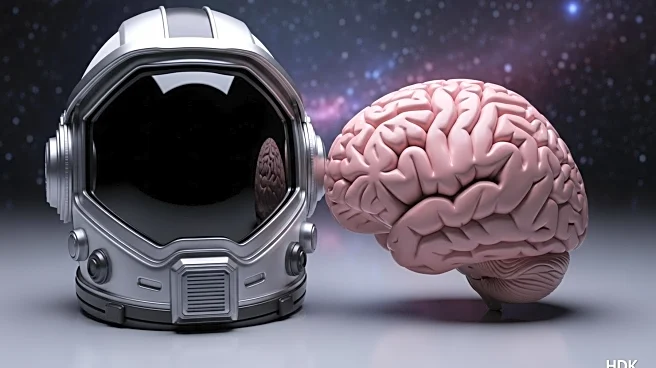What is the story about?
What's Happening?
NASA is advancing research on bone and brain health aboard the International Space Station (ISS) to improve astronaut well-being during long-term missions. The Expedition 73 crew, including NASA astronauts Zena Cardman, Jonny Kim, and Mike Fincke, along with JAXA astronaut Kimita Yui, are involved in various health-related studies. Jonny Kim is processing bone stem cell samples to understand space-induced bone loss, which could also benefit aging and bone disease treatments on Earth. Meanwhile, Roscosmos cosmonaut Oleg Platonov is studying brain adaptation in microgravity using virtual reality goggles. These studies aim to enhance astronaut training and health management in space. Additionally, the crew is conducting eye scans and checking spacesuit gear to ensure safety and health during spacewalks.
Why It's Important?
The research conducted by NASA is crucial for ensuring the health and safety of astronauts during extended space missions. Understanding bone loss and brain adaptation in microgravity can lead to improved health protocols for astronauts, reducing risks associated with long-term space travel. This research not only benefits space exploration but also has potential applications for treating bone diseases and aging-related conditions on Earth. The findings could lead to advancements in medical treatments and technologies, impacting both space missions and terrestrial healthcare. As space exploration continues to expand, maintaining astronaut health becomes increasingly vital for mission success and the future of human space travel.
What's Next?
NASA, along with Northrop Grumman and SpaceX, is preparing for the next cargo resupply mission to the ISS, scheduled for September 15. The mission will deliver additional scientific equipment and supplies to support ongoing research and operations aboard the space station. This resupply mission is part of NASA's continuous efforts to sustain and advance scientific research in space, ensuring that astronauts have the necessary resources to conduct experiments and maintain their health. The outcomes of the current research will inform future spaceflight training and health management strategies, contributing to the long-term success of human space exploration.















